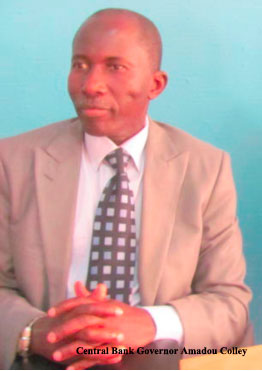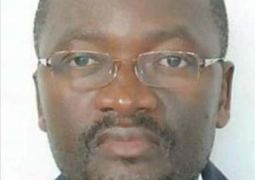
Emefiele made the assertion when he delivered the keynote address at the 31st meeting of the Committee of Governors of WAMZ held in Abuja.
Emefiele was elected chairman of the Committee of Central Bank Governors of the ECOWAS sub-region, to succeed Amadou Colley, Governor of the Central Bank of The Gambia.
According to him, from the study of countries’ preparedness, there are challenges hindering the performance of their economies from meeting the convergence criteria for single currency.
“The study notes that various countries continue to make remarkable progress towards the establishment of a common market and the implementation of the ECOWAS trade integration protocols and reform of their financial systems.
“On the strength of this assessment, the study concluded that the launch of the monetary union by January 2015 is unlikely’.
“Their level of institutional preparedness for the monetary union remains inadequate,” he said.
Emefiele said the study showed that the performance of member states’ on the convergence scale relative to that required for the establishment of a monetary union was still inadequate.
He added that the study revealed that member countries business cycle synchronisation in terms of real Gross Domestic product (GDP), inflation, broad money and interest rate remained weak.
Emefiele said there was need for the buy-in of all member states in WAMZ project, adding that effort to update each other on the level of progress should be strengthened.
He called for intensified effort on sensitisation of all stakeholders and urged individuals to evaluate, sign and ratify the various WAMZ protocols and strive to implement them accordingly.
“It is my belief that with strong commitment to the WAMZ project as demonstrated so far, combined with the necessary political will, we can use our various state machineries to foster the union project by promoting trade integration.
“As the central bank and financial sector regulators, we must commit to develop and support sound banking system and efficient payment network capable of facilitating the required rapid trade expansion in the sub-region,” he said
The governor said that effort must focused on effective coordination between fiscal and monetary policies to support price stability mandate and create appropriate macroeconomic environment conducive for intra-regional trade.
He called for the implementation of a framework for quoting and trading in WAMZ member countries’ currencies to improve trade integration.
Nigeria’s minister of State for Finance, Ambassador Bashir Yuguda and the deputy Governor of the Central Bank of Nigeria, Dr. (Mrs.) Sarah Alade, on Monday urged ECOWAS member-countries to continue with the various fiscal and monetary policy initiatives being undertaking at their national levels aimed at ensuring that the target year set for full monetary integration of the sub region was met.
Giving the advice at the opening session of the 37th ordinary meeting of the technical committee of the WAMZ in Abuja, Ambassador Yuguda said despite the fiscal and other challenges facing the various countries, the integration of the sub-regional monetary system remained vital to ongoing efforts to making the ECOWAS sub-region a major economic bloc in the global economic order.
The minister, who recalled that the meeting which was earlier scheduled to hold in The Gambia was rescheduled to hold in Nigeria due to some challenges in the former, said that Nigeria’s acceptance to host the delegates demonstrated the importance the country attached to the monetary integration agenda and its positive economic implications for the development of the sub region.
On the level of preparedness of the various countries, Yuguda pointed out that while Nigeria had met the four primary parameters and Liberia and Sierra Leone had satisfied three, other countries were still moving towards achieving that, despite their challenges.
The Minister said: “But the most important thing is the political commitment, the realization that we need to come as an economic bloc and with the reality on ground and with the commitment from our political leaders, we believe that we will get there.
But of course it had to be done right so that we don’t start something that is not sustainable and that is the essence of these all meetings.”
In her welcome remarks, the CBN’s deputy Governor, economic policy directorate, reminded the delegates that the deadline for WAMZ countries to achieve monetary integration remained January 1, 2015 while the modified gradualist approach under the aegis of ECOWAS as approved by the Assembly of heads of state and government to replace the two track approach to monetary integration in ECOWAS was also fixed at 1st January 2020.
She, therefore, explained that in view of the resolve of ECOWAS leaders to ensure that these target dates were met, it had become imperative for the technical committee to thoroughly interrogate the issues and identify the key challenges that need to be addressed in order to achieve the objective of single currency in our sub-region.
Alade pointed out that the exercise was of utmost importance given the state of macroeconomic convergence in the WAMZ where Nigeria was the only member state that satisfied all four primary criteria in 2013, while Liberia and Sierra Leone satisfied three each.
Actually, Nigerian news media did report that Nigeria is the only country to have met the four primary convergence criteria required for attaining the proposed single currency for the 15-member ECOWAS.
The media quoted deputy Governor of Central Bank of Nigeria (CBN) Sarah Alade as saying the country met all the criteria set for achieving a common currency for the regional bloc, to be known as ‘Eco’,in 2013.
“It is important to recall that the deadline for the WAMZ countries to achieve monetary integration was set at January 1, 2015. Also, the modified revenue approach under the aegis of ECOWAS was approved by assembly of heads of states and government to replace the two-track approach to monetary integration in ECOWAS for January 1 2020,” Dr. Alade said.
According to her, the four primary criteria needed for the convergence, which Nigeria has met, include single-digit inflation rate at the end of each year and a fiscal deficit of not more than 4% of GDP.
Others are a central bank deficit-financing of not more than 10% of the previous year’s tax revenues and gross external reserves that can give import cover for a minimum of three months.
Liberia and Sierra Leone have met three out of the four criteria, adding that there had been a consistent challenge of year-to-year compliance of the criteria by the member states, according to Dr. Alade.
Source: EIN NEWS
Read Other Articles In Article (Archive)
Alleged assailant arraigned
Nov 3, 2014, 5:14 PM



